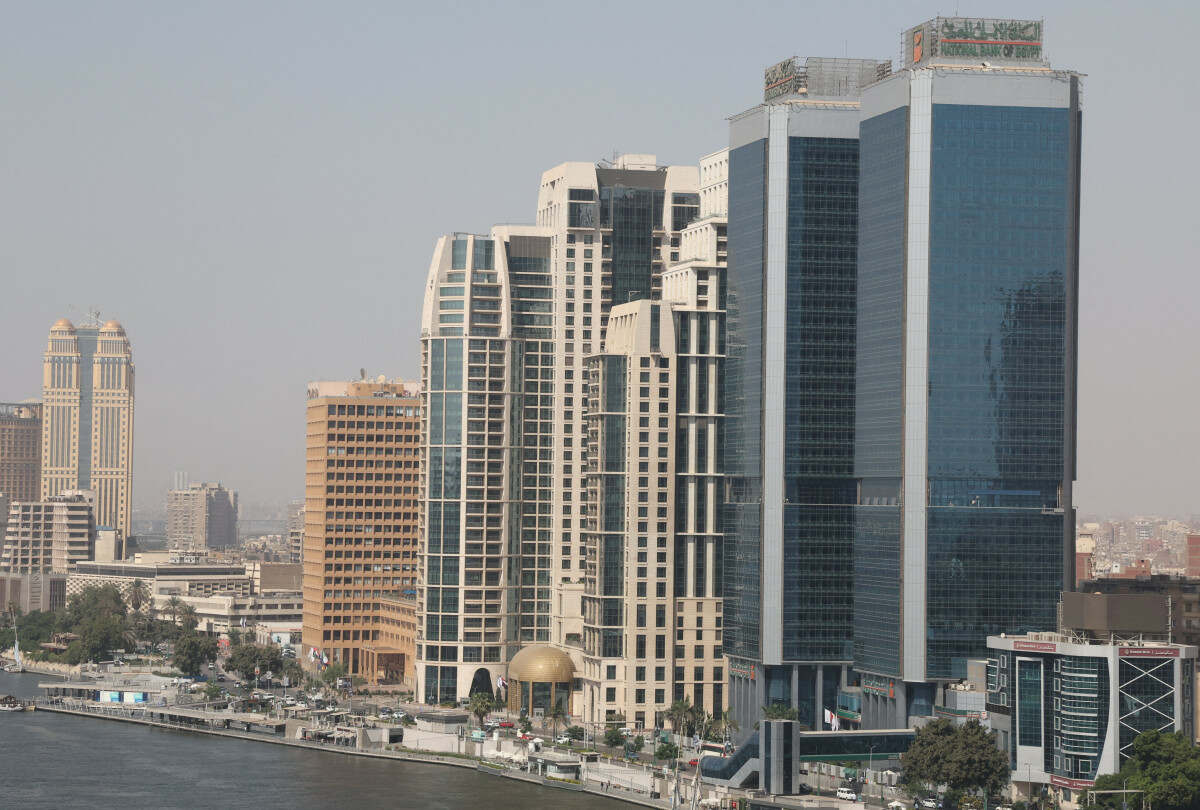
Egyptians have long favored real estate as a reliable investment, considering it a sanctuary that safeguards the value of money during crises. Despite its resilience in the face of numerous challenges, the ongoing global economic crisis is instilling fear. As waves of inflation sweep across various sectors, a crucial question emerges: To what extent is real estate impacted by inflation?
Over the past three years, the robust economy has weathered a series of events and crises, resulting in the collapse of several sectors and an unexpected surge in prices for various goods and materials. From the initial blow of the Covid-19 pandemic and subsequent worldwide lockdowns to the Russian intervention in Ukraine, the economic landscape has been tumultuous. These circumstances undoubtedly contribute to the apprehension surrounding the potential repercussions on the real estate market..
Understanding Inflation: A Surge in Prices
Inflation, marked by a sudden and substantial rise in prices, impacts both consumer and sustainable goods. This surge can be driven by increased purchasing demand or elevated material costs.
Inflation directly weakens the purchasing power of currency, causing an imbalance in the daily lives of citizens. This imbalance is particularly felt as wages may not parallel the rise in the cost of living.
Investors grapple with concerns as high inflation threatens the value of their money and investments. The potential shortages and declines in value pose challenges, coupled with the prospect of decreased profits due to slowed demand for products.
Triggering Inflation: Crisis and Raw Materials
The onset of inflation can be traced back to crises impacting the prices of raw materials crucial to various industries. A prime example is the Russian war on Ukraine, causing a direct spike in building material prices and escalating import costs, accompanied by a surge in energy prices.
As prices soar, there is a notable increase in the demand for real estate. This trend is driven by the perception that real estate offers a secure and stable means of preserving money amidst the devaluation risk associated with keeping it in liquid form.
The interconnected dynamics of heightened prices for production inputs like iron and cement, coupled with a surge in real estate demand, act as primary catalysts propelling the upward trajectory of real estate prices.
Real Estate in the Crosshairs of Inflation: Navigating Challenges
Inevitably, the real estate sector, intertwined with political and economic landscapes, is susceptible to the ripples of crises impacting various industries.
The real estate market’s foundation lies in essential components like iron and cement, irreplaceable in construction. As the import prices of these materials surge, the domino effect is felt, directly influencing real estate prices.
Rising labor wages contribute to the escalation of real estate product prices. This direct link between labor costs and the final product adds another layer to the challenges faced by the real estate market in the wake of inflation.
With land prices on a continuous ascent, real estate developers grapple with increased project costs. In response, many developers, exemplified by the strategic approach of the Mountain View Group in Egypt, opt to build extensive land portfolios. This not only shields them from escalating land prices but also provides the flexibility to undertake future projects with a degree of financial security.
Real Estate: A Beacon of Stability Amidst Economic Turbulence
In the current economic landscape, concerns may naturally arise about the viability of investing in real estate amidst inflationary pressures. Individuals and investors alike ponder the safest avenues to preserve their hard-earned money.
Rest assured, the real estate sector, despite being influenced by external events, remains a relatively secure investment with a minimal percentage of inherent risks. This resilience has been evident in real estate markets globally, particularly in the steadfast Egyptian real estate market.
Unlike markets susceptible to the volatility of real estate bubbles, the Egyptian real estate market stands out as a haven of stability. This characteristic shields your investment from the looming threat of a sudden and drastic collapse in real estate prices. In essence, real estate in Egypt continues to be a reliable anchor in navigating the uncertainties brought about by inflation and economic fluctuations.
Currency Advantage: Exporting Real Estate Amidst Currency Decline
The depreciation of the Egyptian pound, while posing challenges, creates a new avenue for investment—exporting real estate. The local real estate market becomes an enticing prospect for both foreign investors and Egyptians residing abroad due to the favorable pricing.
Investing in real estate remains a prudent choice, particularly in the residential sector. The demand for residential properties exhibits remarkable consistency, with a notable increase of 25%-30%. This surge in demand stands in contrast to the moderate 5% increase in building material prices, indicating a favorable scenario where demand outpaces cost hikes.
Egypt’s continuous uptick in population growth and marriage rates serves as an enduring factor fueling the demand for real estate. This demographic trend ensures a sustained and perpetual need for housing, further solidifying real estate as a reliable and long-term investment choice.
Navigating Economic Uncertainty: Real Estate’s Resilient Stance
In the midst of economic uncertainty, the real estate sector stands out as a beacon of stability, capitalizing on the current state of flux. With real interest rates dipping below zero and the devaluation of the Egyptian pound, local investors are increasingly turning to real estate as a secure haven, shielding them from the volatile impacts of inflation and currency fluctuations.
Safe Harbor for Investors: Local and Foreign Appeal
Current projections suggest that the real estate sector is a secure gateway for both local and foreign investors. Despite a significant uptick in real estate prices, the unwavering demand for properties persists. This demand surge is fueled by sustained population growth and high marriage rates, creating a robust market even in the face of speculation on land and housing unit prices.
Rising Tide of Demand: Factors Driving Growth
Real estate, particularly in Egypt, has ascended to the forefront of investment choices. The decline in the local currency’s value and escalating prices, coupled with a surge in inflation rates, have driven citizens toward real estate for its perceived security. With low risk rates and a high ability to maintain value compared to other economic sectors, real estate caters to the escalating demand for housing—a natural outcome of population growth and marriage rates. This surge in demand, both for consumer needs and speculative investments, solidifies real estate’s position at the pinnacle of Egypt’s investment landscape




